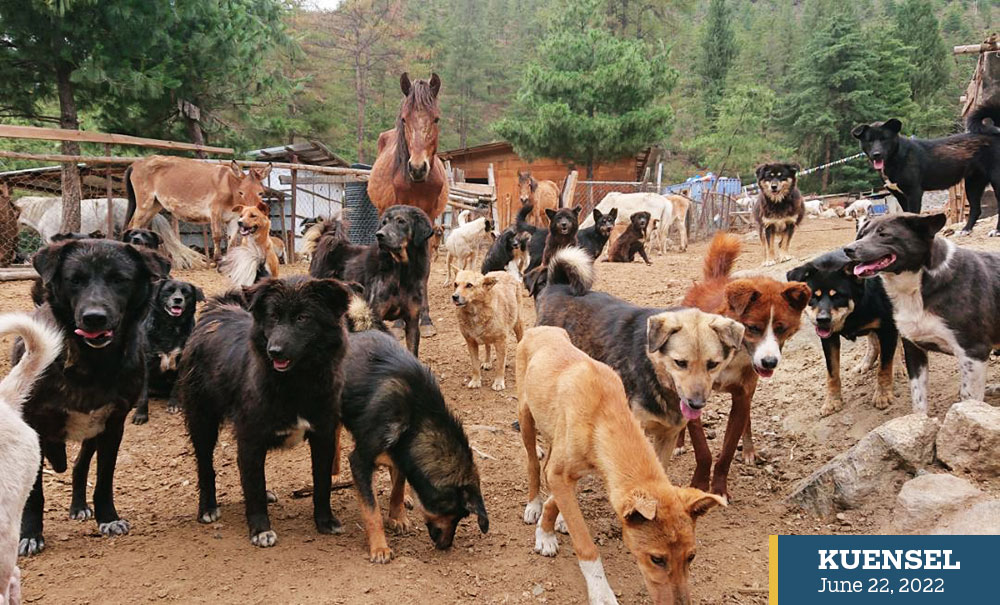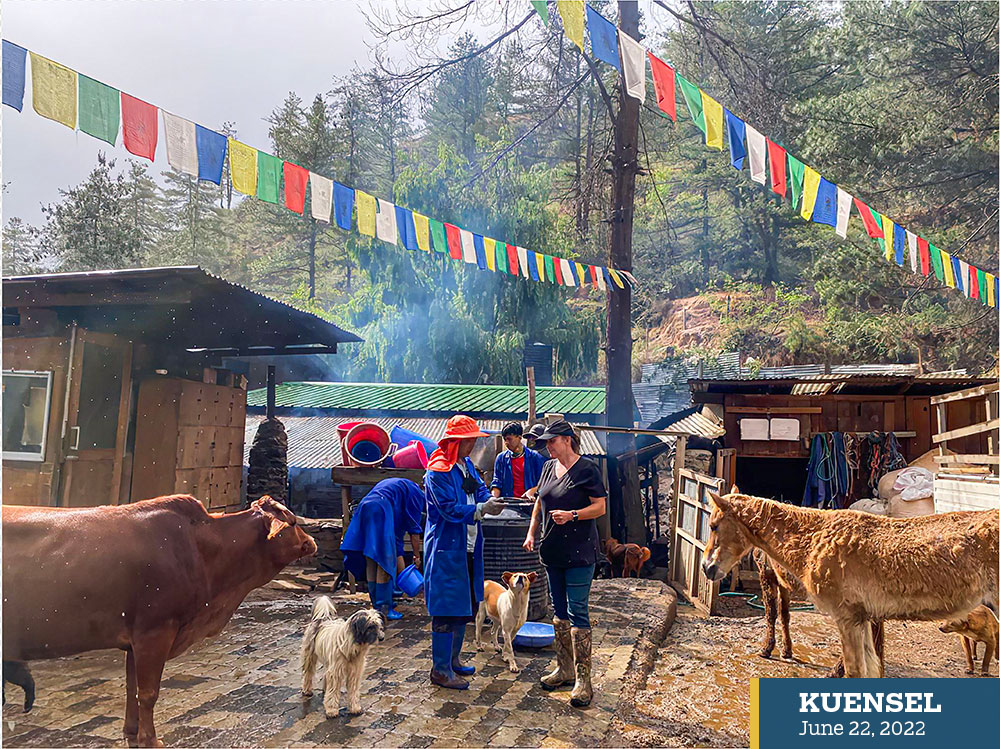Phub Dem
With his dark eyes reflecting peace and excitement, a big black local dog, with three legs barked and lunges towards the sheds.
“Sit, Captain!” a woman says gently, and he quickly drops into compliance, waiting in attention.
At Barnyard Bhutan in Paro, every animal coming to live at the rescue facility gets a name. At least the founder and the executive director of the Civil Society Organisation, Jamie Vaughan, make sure to name one. She says it is difficult to name them all. Currently, there are approximately 550 animals living here.
Jamie is an American who came to Bhutan in 2007.
Initially, the facility was called Maya Foundation, after the name of the first rescued horse. It was in 2011 that Jamie rescued an injured horse that survived against tremendous odds. But Maya died later from a condition that was treatable with technology and expertise but was not available in Bhutan.
Land of the strays, the barnyard was founded to provide rescue, care, treatment, and sanctuary to all animals in need. Today, there are 340 dogs, 41 cats, 63 horses and mules, 53 cattle, 30 goats, 20 pigs including wild boars, and 10 birds.

Located about 15 minutes-drive towards Taktsang from Paro town proper, the two-acre shelter houses scores of animals that stroll, frolic, and race alongside human visitors and shelter employees.
For the animals, Barnyard Bhutan is a haven. Most of them are sick, injured, or old. Common rescues include animals hit by cars, bitten by larger animals, stabbed, abandoned, wire-trapped.
When she first came to Bhutan sometime in 2006, Jamie encountered animals hit by cars. She took them to Bhutan Animal Rescue and Care but soon realised it was too much for them too.
Then she began taking animals, and things grew quickly after people knew she was taking in cows. “It was never intended. Things started happening.”
At that time there was no animal rescue facility or intensive care unit for big animals in Paro.
Jamie Vaughan began taking in strays from the streets of Paro 15 years ago. When the number of dogs in the her small backyard increased, she began the process of establishing a rescue shelter.
Running the facility has not been without challenges. After an arduous process, Barnyard Bhutan finally became an official CSO in 2020.
The barnyard faces the daunting reality of feeding and housing the ever-increasing number of animals. Food alone cost Nu 350,000 per month, and that doesn’t include treatment supplies or staffing.
Animals occupy Jamie’s bedroom, toilet, cupboard, sofa, and even her bed.
Jamie never gets peaceful sleep, having to attend to the injured ones, checking on the animals in the yard, feeding kittens and emergency rescues at odd hours. “There are too many emergencies. We receive at least a call at night.”
Twenty individuals were manning the farm, but half left recently. Jamie handles emergencies late into the night most times. With many animals crowding the farm, she cannot go out to treat animals.
The CSO has plans to move the Barnyard to a larger area as the current place is running short of space. Jamie said that the place was never meant for animals’ shelter. She kept on building structures as animals came. “We will have purpose-built facilities, a free space for the animals to roam freely. We will have space for vet and surgeries.”
As dusk sets in, the shelter employees call the animals for dinner.


